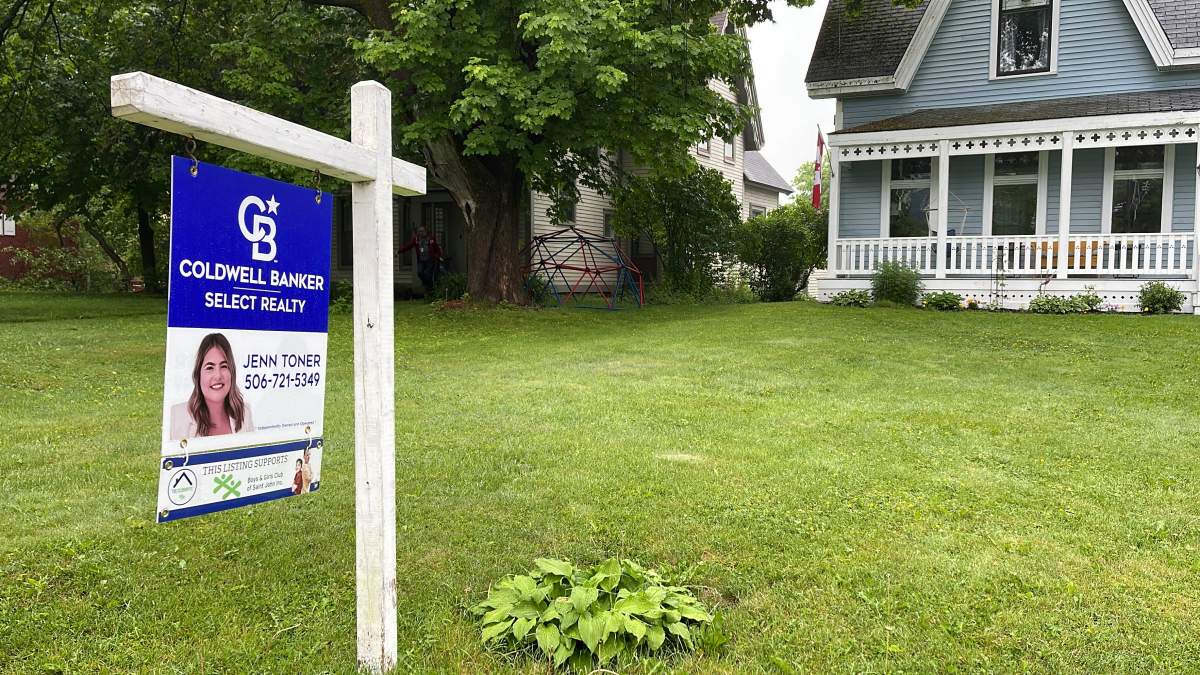The housing market nationwide has been red hot for about two years now — half the time New Brunswick realtor Linnea Vandenberghe’s been in the game.

She says the industry today is completely different than the one she entered in 2018.
“It’s night and day,” she said.
“A couple of years ago I could have probably told you within $5,000 what a house was going to sell for. I can’t do that anymore. It’s just not possible,” said Vandenberghe.
She said it’s hard on her, but even harder on buyers.
“It’s heartbreaking. They get their hopes up about a house and say, ‘Oh, this is the perfect one,’ and then they lose it.”
That, Vandenberghe said, is happening to hopeful homeowners over and over again.
Until this spring, New Brunswick was the most affordable province in the country for those looking to purchase a home.
According to Canadian Real Estate Association data, the average home in New Brunswick was selling for $172,200 in April 2019.

Get daily National news
In April 2022 the average was $313,700.
It’s still the cheapest Atlantic Canadian province to buy in — but if you’re looking for the cheapest houses in Canada, you’ll be shopping in Saskatchewan.
Vandenberghe says she noticed things start to ramp up in the summer of 2020, with many out-of-province buyers telling her they envied New Brunswick’s early pandemic success or were coming home after moving away.
It’s not a province-exclusive phenomenon. The average selling price of a home in Canada was up 7.4 per cent from April 2021 to April 2022 alone.
Murshed Chowdhury, associate professor of economics at the University of New Brunswick Fredericton said some of the country’s bigger markets are starting to see things level off — but not New Brunswick yet.
“There’s not much sign of slowing down yet,” said Chowdhury.
He said other markets like Toronto and Vancouver seemed to take a hit from the Bank of Canada’s recent interest rate hikes, but New Brunswick’s was not fazed.
“Major cities, prices were already high. There’s less room to go up, but in New Brunswick buyers see you can still buy something for $300,000 or $400,000,” he said.
“Buyers see that it’s affordable.”
He said the heat can’t last forever, however — and it certainly can’t get much hotter.
“Everything has to be backed up by fundamentals,” said Chowdhury.
“If I want to buy a house I have to have a good job; if I want to buy a $400,000 home I have to be able to afford it. So unless we create such jobs extensively, how are people going to pay the mortgage? How are they going to pay the rent?
“So I believe there is going to be some cooling down but the question is how long is it going to take.”
Vandenberghe said she’s looking forward to things cooling off a bit, getting back to the days when the dream of owning a home was a tangible one.
“My husband and I were cleaning up from supper the other day, and my daughter’s still sitting at the table, and we were talking about houses and she looks back and she says, Mom, I’m never going to be able to afford a house. She’s 12. She’s turned 12 last week,” said Vandenberghe.
CREA is expected to put out its next quarterly forecast on June 15.







Comments